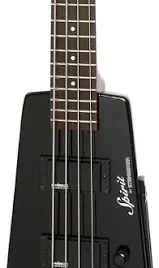Best Bass Guitar: A Comprehensive Guide
There’s something incredibly satisfying about a well-played bass guitar, don’t you think? As an ardent bass enthusiast, I’m thrilled to walk you through this epic journey of exploring the best bass guitars. Let’s dive right in!
Why Choose Bass Guitar?
What Makes Bass Guitar Unique
You see, the bass is the unsung hero in most musical ensembles. While it may not always bask in the limelight, the bass guitar forms the rhythmic and harmonic foundation of any great tune. It’s like the heartbeat of a song. I mean, can you imagine a band without the deep, resonating pulse of a bass guitar?
The Importance of Bass Guitar in a Band
You know what they say, “A band is only as good as its bassist”. The bass guitar brings depth and solidity to a band’s sound. It’s the glue that holds the entire band together, bridging the gap between rhythm and melody. Fascinating, isn’t it?
What to Look for When Buying a Bass Guitar
Choosing the Right Bass Guitar for Your Style
Ever been to a music store and felt overwhelmed by the sheer variety of bass guitars? Jazz bass, Precision bass, active, passive—the list goes on. But here’s the secret: the best bass guitar for you largely depends on your playing style and musical genre.
Jazz Bass vs Precision Bass
Jazz Bass typically has a slimmer neck and produces a bright, rich, and nuanced tone. On the other hand, Precision Bass, with its chunkier neck, is known for a powerful, punchy tone.
Active Bass vs Passive Bass
Active basses come with a preamp and offer more control over tone shaping. They’re great if you want to fine-tune your sound on the go. But passive basses, which lack a preamp, deliver a warm and vintage tone.
Understanding Bass Guitar Specs
You’re probably thinking, “Why should I bother about the number of frets or scale length?” Trust me, these aspects can drastically affect your playing comfort and sound.
Number of Frets
A standard bass has 20-24 frets. More frets mean a broader range, but also a longer neck. So, if you prefer high notes or solos, go for more frets. But if you’re more comfortable with a shorter neck, stick to the standard range.
Scale Length
Scale length refers to the distance from the bridge to the nut. A longer scale length produces a brighter tone, while a shorter one results in a warm, mellow sound. It also impacts the string tension and playing comfort.
Wood Type
The type of wood used in a bass guitar affects its tone and resonance. For example, Alder produces a balanced tone, while Mahogany provides a deeper, warmer sound.

Top Bass Guitar Brands to Consider
Fender
Fender is a legendary name in the bass world, known for their Precision and Jazz models. Their bass guitars deliver both in terms of sound and quality.
Gibson
Gibson’s bass guitars are renowned for their rich, deep tone and iconic designs. If you’re into rock or blues, you’ll love Gibson.
Ibanez
Ibanez offers a wide range of bass guitars catering to different styles and skill levels. They are versatile, comfortable to play, and quite affordable.
Rickenbacker
Rickenbacker bass guitars are known for their distinctive tone and high-quality craftsmanship. Often favored by rock and pop musicians, they provide a unique blend of warmth and bite that’s truly remarkable.

Maintaining Your Bass Guitar
Taking care of your bass is as important as choosing the right one. Regular cleaning, changing the strings, and getting professional setups can significantly extend the life of your bass guitar and improve sound quality.
Practicing and Improving Your Bass Skills
Like with any instrument, practice is key. Remember, your goal isn’t just to play notes but to create a rhythm that drives the song. Learn different techniques, play along with songs, jam with friends—just keep that bass thumping!
Conclusion
Choosing the best bass guitar involves understanding your unique style and needs. With a bit of research and testing, you’ll find a bass that resonates with you. So, ready to hit those low notes and make some groovy music?
FAQs
1. Is bass guitar easier to learn than electric guitar?
While the bass may have fewer strings, it demands rhythm and timing precision. So, it’s not necessarily easier—just different.
2. Can I start learning on an electric bass guitar?
Absolutely! In fact, most bass players start on an electric bass. It’s versatile and ideal for various music genres.
3. How often should I replace bass guitar strings?
This depends on how often you play, but a general rule of thumb is to change them every 3-6 months.
4. Should I get a 4-string or a 5-string bass as a beginner?
A 4-string bass is usually recommended for beginners as it’s easier to navigate.
5. What’s the difference between a bass guitar and an electric guitar?
Apart from physical differences like size and number of strings, they play different roles in a band. The electric guitar typically plays the melody, while the bass guitar provides rhythm and harmony.




